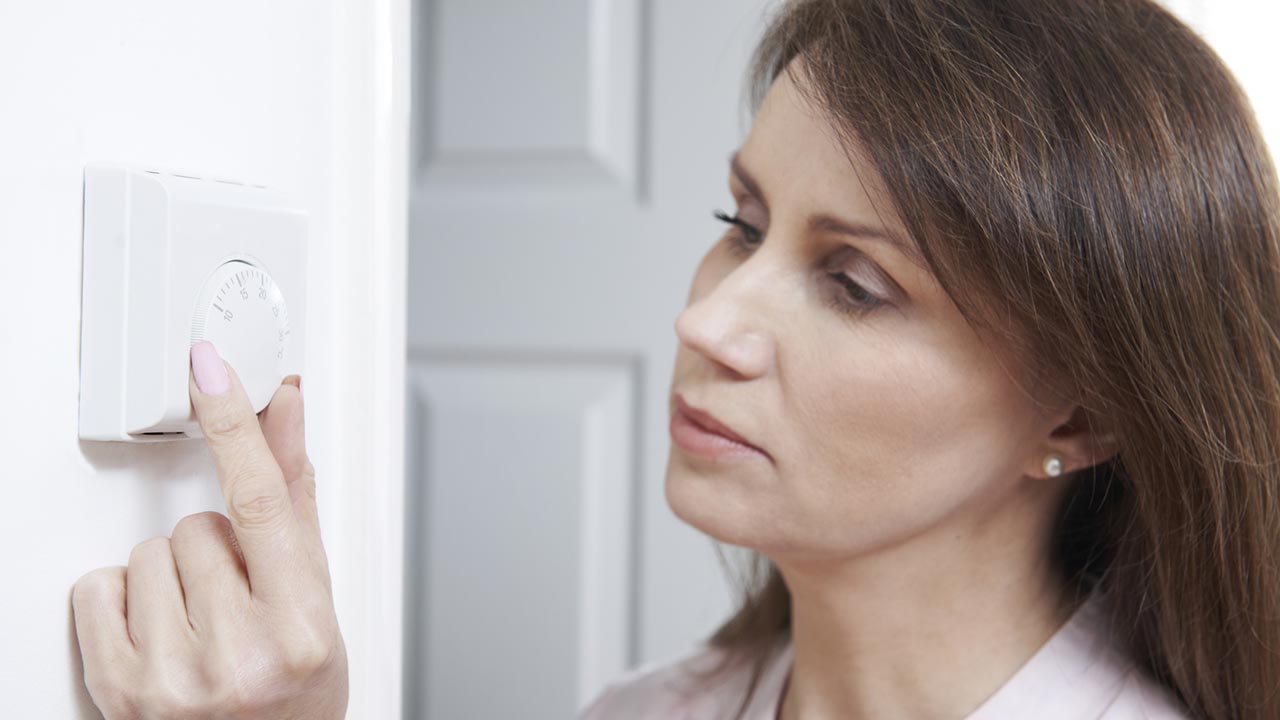 highwaystarz/fotolia
highwaystarz/fotolia
With cooler weather coming, many of us are turning up the heat to battle the chill in our homes. Out go the tank tops and flip-flops, and we start bundling up in sweaters and hoodies. For women suffering from hot flashes, however, sweaters and a roaring fireplace may not be as enjoyable as they once were. One minute, you’re warm and cozy and the next, you’re stripping off that sweater and sticking your head in the freezer to cool off.
Summer weather presents its own difficulties when it comes hot flashes. Cranking up the air conditioner when it’s sweltering outside is an expensive solution to fluctuating body temperatures. Every season creates unique challenges for women suffering from hot flashes during menopause.
Just like animals in the wild, human reproductive function appears to fluctuate with the seasons. According to WebMD, the number of women reporting their first missed period peaks in the spring months and, to a lesser degree, in the autumn months. While the exact reason is still unknown, scientists suspect that melatonin, a hormone that affects the circadian rhythm or 24-hour body clock, could play an important role.
We may not understand exactly WHY our hormones fluctuate with the seasons, but there are tricks to deal with the resulting hot flashes brought about by our changing hormone levels. Here are a few ways to beat the heat of those dreaded hot flashes during both summer and winter.
In the Winter
Dress in layers: Multiple layers of clothing that are easy to put on and take off will make dealing with hot flashes much easier. Dressy tank tops underneath lightweight, button-down sweaters or cardigans will allow you to easily remove the warmer garments and get that much-needed cool air against your skin quickly.
Keep a fan nearby: Small, portable fans are an easy and inexpensive way to deal with hot flashes. Tuck one under your desk at work and when that hot flash hits, turn on the fan as you take off heavy outer layers of clothes. Rather than trying to cool off the entire office, just getting the air flowing in your own personal corner may help you survive the next hot flash without annoying your co-workers.
Dress lightly for bed: Rather than going to sleep in flannel pajamas, wear something lightweight and breathable to bed. Keep the bedroom cool and layer on smaller blankets that are easy to remove if hot flashes and night sweats kick in. Removing blankets is easier than removing your pajamas!
Keep holiday stress to a minimum: Fall and winter are jam-packed with shopping lists, holiday parties, and other pressure-inducing situations. One thing that you can do to reduce the incidence of hot flashes is reduce your stress level. According to WebMD, stress is a common hot flash trigger so cutting your to-do list this winter may help reduce the number of hot flashes you experience. Have your holiday party catered and sit back and relax!
In the Summer
Tackle summer heat with cold beverages: During the hot summer months, your body is already working hard to cool itself off. Avoid hot coffee and tea and stick to iced beverages instead. According to Drugs.com, drinking a glass of cold water when you feel a hot flash coming on may lessen its severity.
Avoid caffeinated sodas: A nice, cold, refreshing soda sounds good on a hot, summer day, right? If you suffer from hot flashes, you may want to choose a caffeine-free soda if you decide to indulge. According to Cleveland Clinic, caffeine may trigger hot flashes.
Stay hydrated: While it is always good for our bodies to stay hydrated, summer heat makes it a tad more difficult. “Drink at least two quarts daily," writes Phyllis Balch, author of Prescription for Dietary Wellness. "Drinking water replaces fluids lost to perspiration during hot flashes and can even prevent or minimize the hot flashes themselves."
Use cold compresses: One of the tough things about summer hot flashes is there are only so many clothes that can be taken off to get cool! If you are suffering from summer hot flashes, try placing a cold washcloth on the back of your neck to cool off. Storing a wet washcloth in the refrigerator or freezer will allow you to have a cold compress at your fingertips at all times.
Hot flashes are challenging to deal with, no matter what the season. Lifestyle changes such as eating a healthy diet, getting plenty of exercise, and avoiding stress may help reduce their frequency and severity. Most likely, however, you will have to deal with hot flashes at some point during menopause. To successfully survive them, you may need to vary your treatment approach depending on the season.
Sources:
Menopause May Be Tied to the Seasons., WebMD. Retrieved October 11, 2015. http://www.webmd.com/menopause/news/20040609/menopause-tied-seasons
Menopause and Hot Flashes. WebMD. Retrieved October 11, 2015. http://www.webmd.com/menopause/guide/menopause-hot-flashes
Hot Flashes. Drugs.com. Retrieved October 11, 2015. http://www.drugs.com/health-guide/hot-flashes.html
Non-Hormonal Ways to Cope with Hot Flashes & Menopause. Cleveland Clinic. Retrieved October 11, 2015. http://my.clevelandclinic.org/health/diseases_conditions/hic-what-is-perimenopause-menopause-postmenopause/hic-non-hormonal-ways-to-cope-with-hot-flashes-and-menopause
Menopausal in the summertime: How to fight hot flashes. She Knows. Retrieved October 11, 2015. http://www.sheknows.com/health-and-wellness/articles/993465/perimenopause-in-the-summer-how-to-fight-hot-flashes
Reviewed October 14, 2015
by Michele Blacksberg RN




